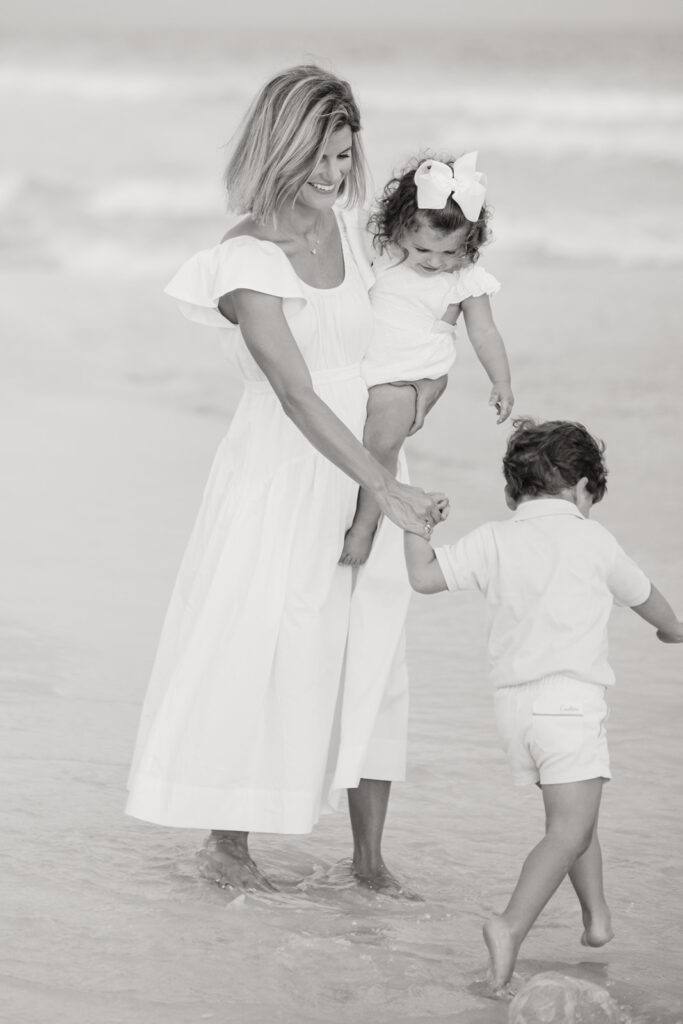This year has been such a journey of reflection and growth for me. There have been so many lessons I learned about belief, trust, and how my emotions can shape the way I see things. There have been struggles and small wins along the way, but one thing I’ve realized is how important it is to stay anchored in truth, even when everything feels uncertain.
From dealing with anxiety to figuring out discipline and learning to trust the process, these lessons haven’t come easy—but they’ve been so worth it. I hope that by sharing them, they encourage you as much as they’ve shaped me.
Belief/faith is a choice. And my feelings don’t define what’s true.
I’ve learned a lot about belief this year. Specifically, that it’s a choice—and one that often goes directly against how I feel. When life feels hard, chaotic, or downright unfair, it’s tempting to let my emotions take over and dictate what I believe about God. If I feel discouraged, I assume He’s distant. If things don’t go my way, I start to question His goodness. But here’s what I’m learning: feelings are not facts.
Belief isn’t about my mood or circumstances; it’s about intentionally choosing to trust God’s Word, even when it feels impossible and quite literally looks like a lie. And let me tell you, it’s not always easy. It’s hard to hold onto truth when everything around me screams otherwise. But truth doesn’t shift with my emotions—it’s steady, anchored in God’s promises.
This year, I’ve had to remind myself that my feelings are powerful but not always reliable. Just because I feel something doesn’t make it true. Discovering what God says about me and choosing to believe it—despite what my feelings might say—has been a game changer.

The root of all sin is unbelief.
Here me out on this one. This realization has changed the way I see everything.
I heard a pastor say: “The root of all sin is unbelief.” At first, it felt heavy, but the more I sat with it, the more I realized how true it is. Unbelief starts with wrong thinking—doubting who God is and what He says—and leads to behaviors that don’t align with God’s best for me.
This hit home for me when I noticed how much unbelief I carry in my own heart. When I’m jealous or stuck in comparison, it’s because I’m doubting that God has good plans for me. I can quote Jeremiah 29:11 for everyone else, but for me? Not so much. That doubt creeps in, and insecurity follows close behind.
This year, I’ve been working to see those feelings—jealousy, fear, impatience—as invitations. They’re signals pointing me back to truth. God’s plans for me are good, even if they don’t look like anyone else’s. And when I choose to trust Him, it shifts my perspective completely.
The area(s) of my life where I have the most anxiety is the area where I’m not trusting God.
One of the biggest connections I’ve noticed this year is between anxiety and trust. Most of my anxious thoughts happen when I’m holding onto control and not trusting God. Of course, not all anxiety comes from this place, but for me, there’s usually an element of wanting to fix everything myself.
Letting go isn’t easy—I’m a chronic overthinker—but when I start to surrender my worries, even in small steps, I find peace. It’s not instant, and I’m not perfect at it, but it’s been amazing to see how trust and peace go hand in hand.
Discipline is choosing between what I want now and what I want most.
Let me be real: I am not naturally disciplined. I love to wander and follow my curiosity wherever it leads. Deadlines? Hate them. But I’ve learned that the things I want most—whether it’s a stronger relationship with God, better health, or progress in my goals—don’t happen without daily disciplines.
For me, it’s all about balance. I need structure, but I also need room to breathe. One thing that’s helped is keeping what I want most at the forefront of my mind. For example, I may not always want to read my Bible or pray, but I deeply desire intimacy with God. That reminder helps me stick with the disciplines that lead to the freedom I crave.
Over-explaining myself does not mean I will be understood.
I’ve noticed this year just how much I over-explain things. Probably more than I realized before. I mean, my therapist says it’s a trauma response to everything I’ve been through over the last 5 years. And I can also see that it’s also partly due to being on the internet and having things I say picked apart, taken out of context, and not always getting the benefit of the doubt.
But it comes from wanting to make sure I’m understood… like really understood. I’ll explain and re-explain to cover every possible angle, but it doesn’t always help. If anything, it can leave me feeling frustrated and second-guessing myself. I’m starting to see that sometimes, it’s better to just say what I mean, let it stand, and trust that it will land how it’s meant to.
I catch myself doing this on social media all the time—especially on IG stories. I want to make sure everyone knows exactly what I mean, and honestly, it’s exhausting. The truth is, no matter how much I explain, I can’t control how people interpret it. Lately, I’ve been working on keeping it simple—sharing what’s on my heart and letting it be enough. It’s not easy, but it feels so much lighter to trust that the right people will understand.
And I’ve realized (and accepted) that some people simply don’t have the capacity to see my point of view or “understand” me because of their own trauma or unhealed wounds.

When emotions are high, clarity of thought is low.
Have you ever been so overwhelmed with emotion that you just couldn’t think straight? Same. This year, I came across Dr. Daniel Siegel’s concept of “flipping your lid,” and it’s been such a game-changer for me. The idea is that when we’re emotional, our rational brain (the cortex) kind of shuts down, and our emotional brain (the limbic system) takes over.
Learning this has given me so much grace for myself. When I’m caught up in intense emotions, I’ve started making a conscious effort to pause, take a breath, and give myself time to calm down so my rational brain can kick back in. It’s definitely a process, but just understanding the science behind it has helped me handle those moments so much better.
Trusting the process can help take the pressure off.
Sometimes life feels so overwhelming that even figuring out the next step feels impossible. I get this on such a deep level. When I’m stuck or paralyzed by what to do next, having a process in place has been a lifesaver. It’s like a roadmap that takes the pressure off me to have all the answers.
Whether it’s a Bible reading plan, a workout guide, or just a simple daily schedule, having something step-by-step to follow gives me the structure I need. It creates space to breathe, to take things one small step at a time, instead of spiraling into overwhelm. I’ve learned to lean into the process and trust that it will guide me forward—even when I don’t have everything figured out.
I can’t judge past decisions on present information.
One of the hardest lessons I’ve learned this year is the importance of giving myself grace for past decisions. It’s easy to look back with the clarity I have now and feel regret, but the truth is, I made those choices based on what I knew at the time. Learning not to judge my past with my present perspective has helped me let go of guilt and embrace growth instead.
This year has been full of lessons—about belief, trust, discipline, and even how my brain works. If there’s one thing I’m taking with me, it’s this: every struggle is an opportunity to lean into truth. It’s not always easy, but it’s always worth it.

9 Responses
This was so good! Thank you for your authenticity!
You are an amazing writer!!! God gifted you that maybe long ago but maybe recent knowing this would aid in your healing!!! Keep sharing it helps ALL of us who follow you!
Fantastic blog and I took note of a few of your points!
When you write your first book, I’ll buy the first copy! Excellent sweet girl
I really enjoyed reading your reflections and insights. Wishing you health, happiness and continued growth in 2025!
So so good, Brighton! Thank you for sharing!
And right here is God showing you and your followers your purpose. Not your only purpose, of course- but having the ability to share your knowledge, these perceptions, and realizations. Teaching us via your sincere and heartfelt experiences. What a cascade of hope and faith you give to others in need of these words. You make a difference!
SO GOOD WOW THANK YOU FOR SHARING! Well said!
Thank you for sharing, Brighton ! It is very helpful ♡